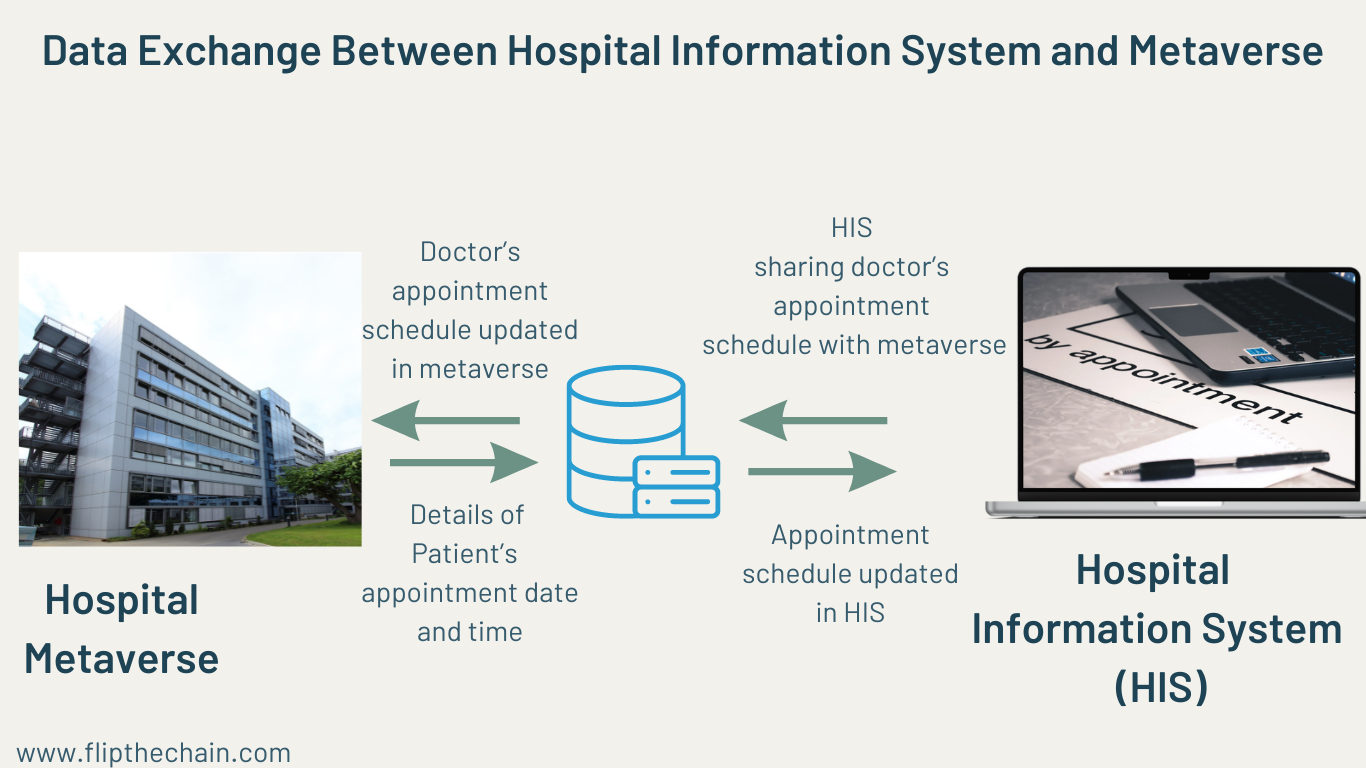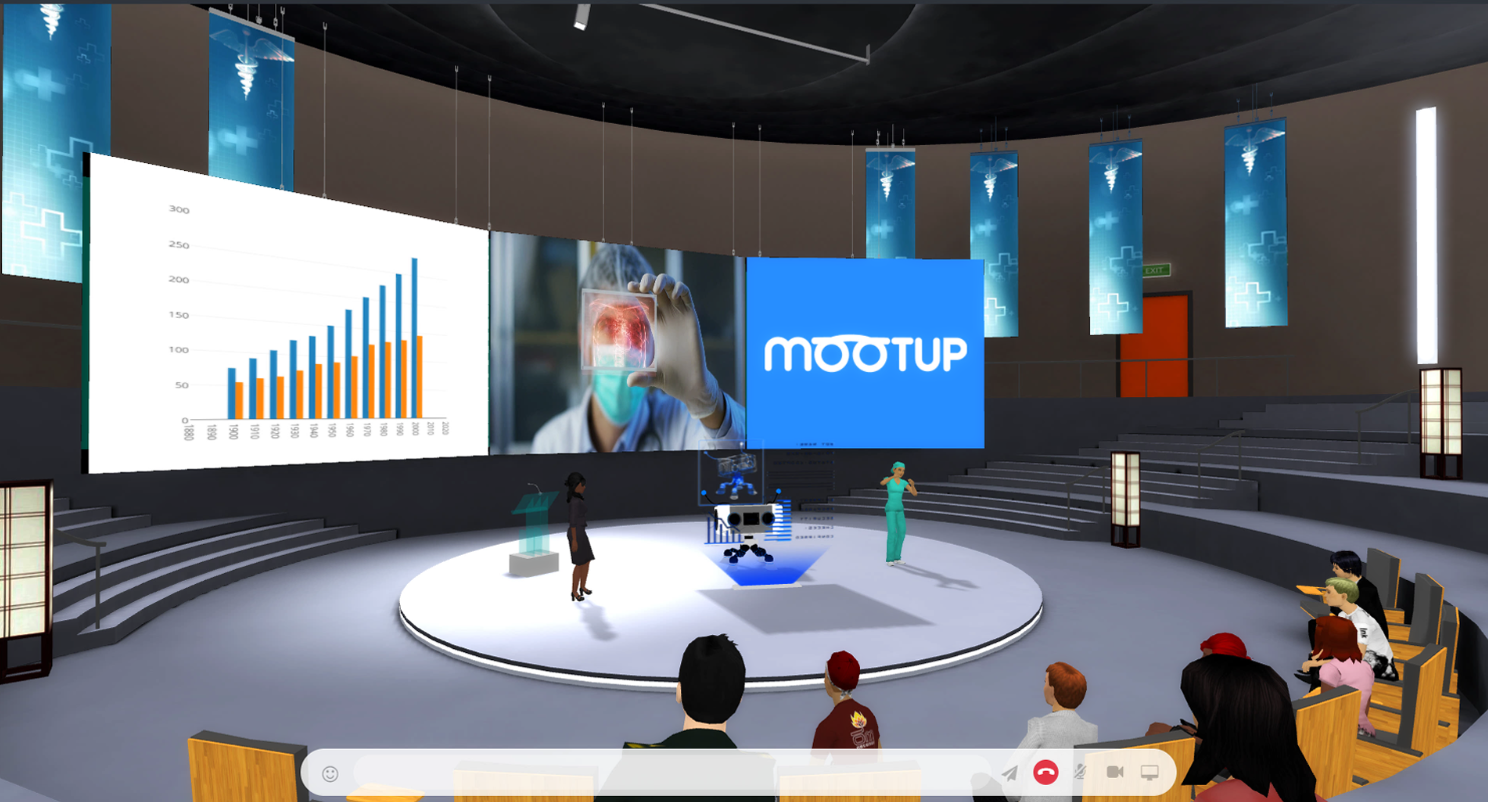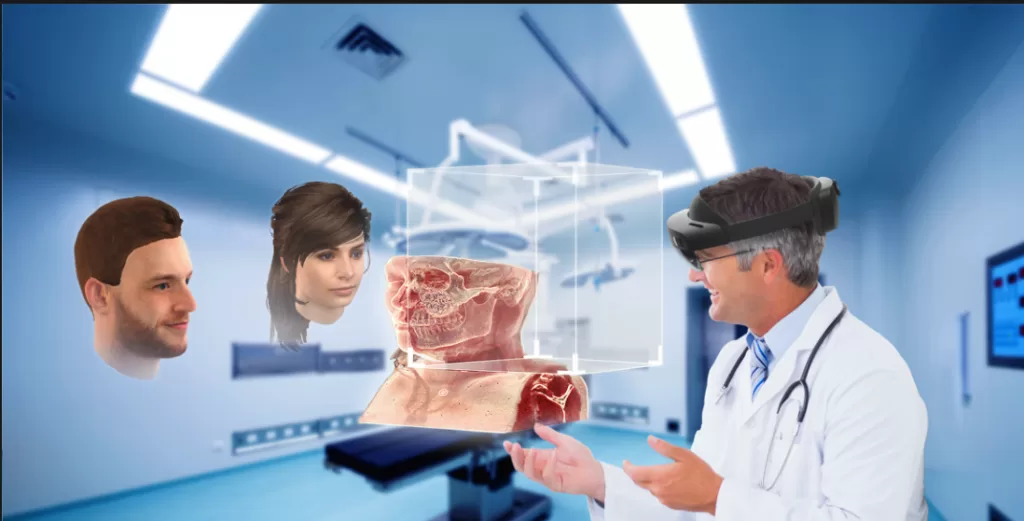Metaverse technology is squeezing in slowly into different industries and proving its worth. The Chief Information Officers across industries have already started acknowledging good return on investment potential and high profitability owing to metaverse1McKinsey & Company. (2022, June 14). Value creation in the metaverse. McKinsey & Company. https://www.mckinsey.com/capabilities/growth-marketing-and-sales/our-insights/value-creation-in-the-metaverse. Since the benefits of metaverse are too difficult to ignore, hospital CIOs have a bright chance to start thinking about adapting simple use cases of metaverse in hospitals, or else it shall be too late.
Simple Use Cases of Metaverse in Hospital
Following are the use cases that a hospital can adopt easily:-
1) AI Bot/Virtual Assistant in Metaverse and Hospital Tour
AI Bots have become quite common these days across industries. These are intelligent enough to answer frequently asked questions. Following are some of the uses of AI Bots or virtual assistants in hospital metaverse:-
a) Make Patients Accustomed to the Hospital Environment Even Before They Arrive!
Patients coming to your hospital, for the first time, are generally confused and have a lot of questions to be answered. Metaverse Virtual Assistance can help answer these questions even before the patient starts from his/her home.
b) Know Hospital Facilities with the help of Metaverse!
Visiting a hospital is not the same as visiting a mall. Patients as well as their next of kin are anxious while visiting the hospital. In such a scenario, helping the patient’s family visualize the following can help ease the anxiety to a certain extent.
- The hospital parking space
- How does the hospital lobby look like?
- If the size of the treatment room is good enough for the patient
- If there is a gift shop in the hospital to buy one for the patient
- If there is a salon in the hospital
- What does the waiting area look like for staying in the hospital overnight?
and the list goes on.
Metaverse can help your patients and their families, have an outstanding experience in connecting with your hospital.
2) Appointment System and Medical Records
To add on to the patient’s experience, you can integrate Metaverse with the Hospital Information System.
a) Patient Appointments
When a patient logs in to the hospital metaverse and scans through the list of doctors, right from within the metaverse, he/she shall be able to proceed to book an appointment with the doctor. Since the metaverse can connect with the Hospital Information System (HIS), a real-time schedule of the doctors shall be visible to the patient in the metaverse. On successful doctor’s appointment booking, the Hospital Information System (HIS) API fetches the booking details from the metaverse and updates the schedule in the hospital information system.

b) Medical Records
Further, the patient experience can be enhanced by connecting the hospital metaverse platform with PACS and the Hospital Information System. This shall enable the patient to log into the metaverse and with the help of the metaverse assistant bot, access radiology, and laboratory investigation reports and download it.
3) Medical Conference
Doctors and Hospitals spend a hefty amount on organizing medical conferences, which includes travel, lodging, food, and excursions if the conference is abroad. While these conferences are useful and add a lot of value to the medical practice, it come at a cost, which can’t be easily ignored.
An alternative to medical conferences is a metaverse event where doctors from all across the world can connect together in an event but at a fraction of the cost. Further, if the Virtual Reality headsets are used, the immersive experience simulates the offline medical conference.
Setting up a medical conference in the metaverse can be easily handled by the hospital IT team or it can be outsourced to any well-known metaverse platforms.
Try out a virtual conference metaverse simulation to visualize what it would look like.
4) Patient Education
Often physicians and care providers feel a need to educate and motivate their patients on health and well-being however because of the logistics and space issues, addressing all the patients at once, is not possible. Further in certain medical conditions like pregnancy, disability, fractures, etc. the patient may not be able to attend the conference in the hospital premises.
However, with the help of the metaverse, all the patients can attend the patient education seminar, from the comfort of their home.

Also Read – In Demand Jobs in Metaverse For Healthcare Professionals
5) Metaverse Surgery
Another simple use case of the hospital metaverse is Metaverse Surgery. Very often, during complicated surgeries, there is a team of surgeons who operate the patient. Sometimes these surgeons travel from far-off places to participate in the surgery, which increases the total cost of the surgery. Metaverse has made it possible for surgeons to connect from remote places and be a part of the surgery, without the need to be present in the Operation Theatre, with the main surgeon.
Remote surgeons with the help of Virtual Reality sets can feel immersed in the surgery room and guide the main surgeon with the help of annotations during the surgery. In the image below, the incision annotation is placed by the remote surgeon connected via the hospital metaverse.

Secondly, during the pre and post op surgery, the hospital metaverse allows doctors to get along in a virtual room, together and discuss patient’s case history. Further, since metaverse platform has the ability to connect with the hospital information systems and PACS, surgeons can retrieve 3D images of the patient’s body parts and effectively discuss the condition of the patient and decide the treatment regime.

Thirdly, a lot of medical institutes are using hospital metaverse to teach human anatomy to its students. Such lectures are far more interesting and has a better retention as compared to offline sessions. Further, as compared to the offline sessions, where not all students are able to see the human body (due to huge number of students in the human anatomy lab), especially the ones who are shorter in height, the hospital metaverse helps with a comfortable view without any obstruction.
Take Away
The metaverse platforms are becoming quite user-friendly and are being transformed to be used as plug-and-play tools. One doesn’t need much of the technical skills to setup a hospital metaverse platform. As and when the adoption of metaverse in hospitals increases, so shall the use cases of the metaverse. New use cases in hospital metaverse like remote patient monitoring, hospital clinical trials, elderly and disability care, remote robotic surgery, and care navigation can be seen in the near future.
Reference







